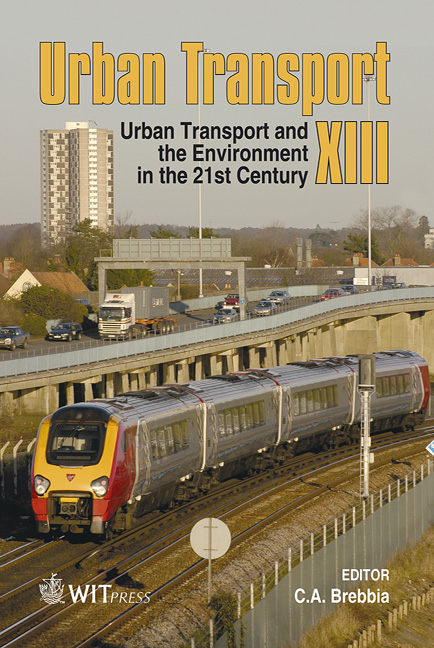Will Virtual Mobility Replace Physical Mobility?
Price
Free (open access)
Transaction
Volume
96
Pages
10
Published
2007
Size
777 kb
Paper DOI
10.2495/UT070061
Copyright
WIT Press
Author(s)
K. Jauneikaite & D. Misiunas
Abstract
The structure of modal distribution in Vilnius still corresponds to principles of sustainable development, but the fact that changes in the Vilnius modal distribution are progressing very quickly is causing problems; the throughput of streets is unsatisfactory, traffic jams are never-ending, and non-motorized means of transport have lost their attractiveness because of poor safety and quality of the environment. The main goal of surveys described in this paper are to estimate the influence of virtual mobility compared to the physical one and to use the data obtained for further planning of the urban transport system structure. To achieve this goal the following tasks were solved: the factors making the biggest influence on the type of trip have been identified, and the size and tendencies of virtual mobility at the target group point have been estimated. The results of previous surveys suppose that virtual mobility will progressively be instrumental in decreasing the weight of physical trips. For proving this assumption, a representative part of the target group kept notes in their diaries of virtual mobility periodically, indicating how many physical trips they do daily and how many of them they can \“avoid” by using the Internet or cell phones. The data obtained allowed us to estimate the changeable structure of the trip chain, decreasing the number of daily and duty journeys etc. Keywords: virtual mobility, mobility diary, transport planning, land use planning, significance of travelling criteria. 1 Introduction The market economy sees transport as the basis for speedy, convenient and safe realisation of transport-related economic relations between a producer and a user, also for the creation of conditions for the smooth movement of goods and passenger flows. The transport complex of Vilnius County consists of motor,
Keywords
virtual mobility, mobility diary, transport planning, land use planning, significance of travelling criteria.





